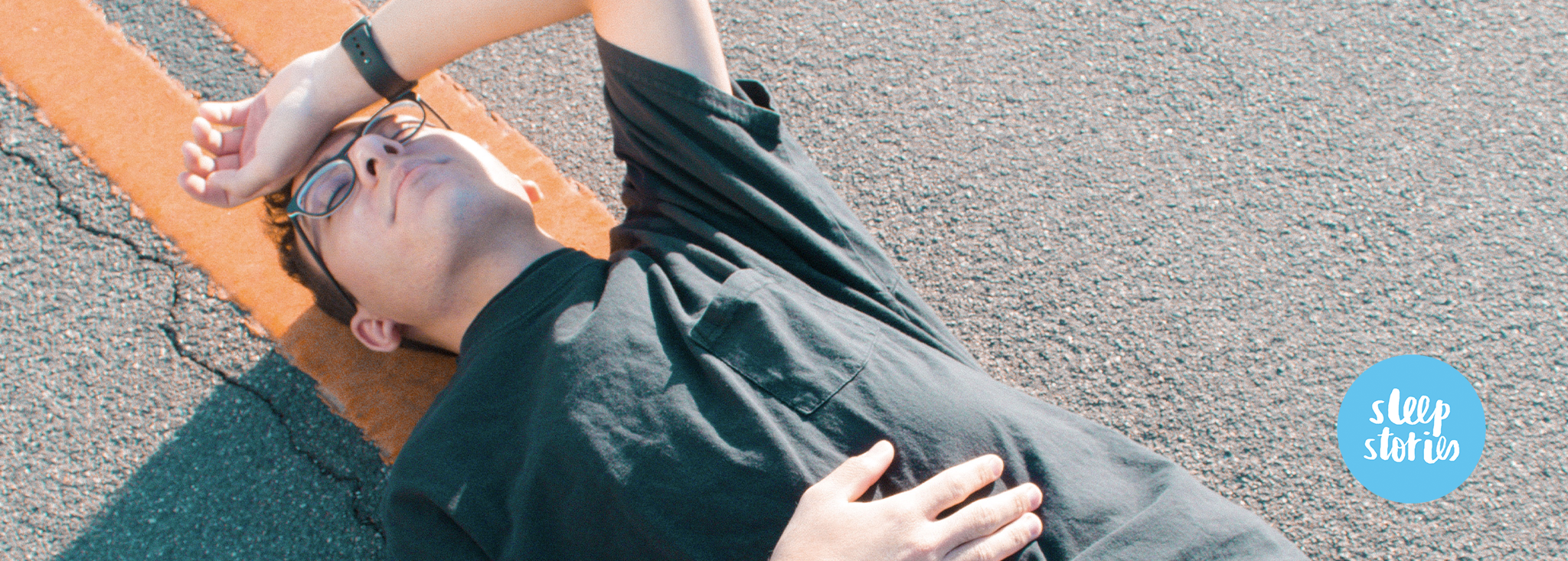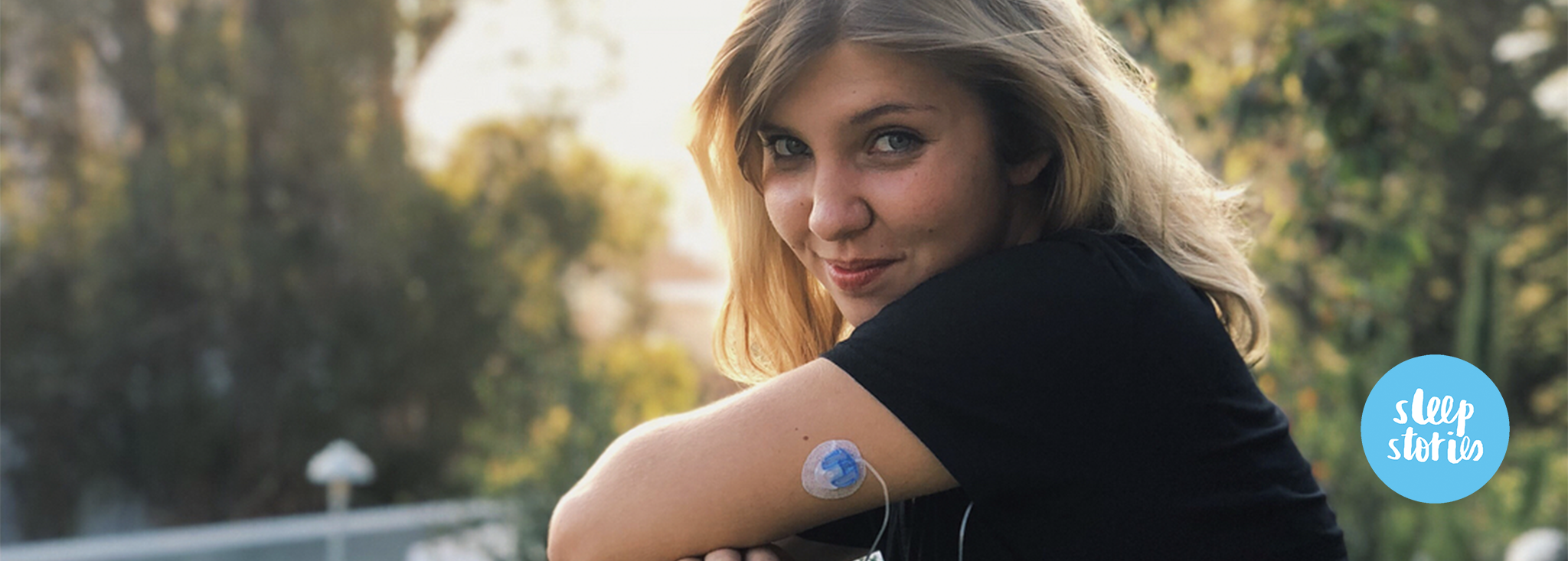Love + Lost Sleep
Written by: Lisa Vande Vegte
3 minute read
March 9, 2020
This content was made possible with support from Medtronic Diabetes., an active partner of Beyond Type 1 at the time of publication.
Familiar fear
Beep… Beep… BEEP!
At first, I think that I’m dreaming, but the beeping persists and when I wake, I realize it’s my husband Matt’s continuous glucose monitor (CGM) warning him that he is low. I fumble for my phone and open my follow app. It loads, and lets me know that he’s in the high 60s with an arrow slanted down.
I nudge him to wake up and say, while still half asleep, “Hun, your alarm is going off. You’re low. Can I get you a glucose tab?”
He groggily replies, “What’s wrong?” and I repeat that he is low, only maybe a little more abrupt and to the point.
He quickly says, “No, I’m fine. I’ll fix it. You can go back to sleep. Thanks.”
He is trying not to burden me with his diabetes, and I am trying to be supportive and help. We do this dance back and forth for a few minutes and then I go back to sleep. Overall, I probably lost 15 minutes. Matt, on the other hand, will be half awake for the next hour or so trying to get his blood sugars to go back up. When people ask me if I lose sleep because of Matt’s diabetes, I usually respond, “Not as much as he does” and keep it surface level. What I don’t tell them is what I often think to myself: Losing sleep is better than losing him.
A difficult season
There was a time when I couldn’t sleep because I had such intense fear that I would wake up to Matt being in a coma or worse, dead. This was during an especially rough time when Matt’s diabetes was pretty much the center of our lives. Long story short, he’d had a severe low while traveling alone out of the country and when he came back, his blood sugars were all over the place. That was the first time I’d really felt the weight of diabetes in our lives.
Tears would stream down my face as I lay next to him in bed at night, thinking of all the horrible outcomes of a severe hypo. I would set alarms to wake myself up to check his blood sugars throughout the night to ensure that he was in a safe range. I made sure that his glucagon pen was nearby, and I would rehearse how to use it in my head. I’d think of where the nearest hospital was and debate whether or not I’d drive him to the hospital or if I should call an ambulance. I remember I’d sometimes wake up in the middle of the night and hover my hand over his mouth to feel his breath. There have been a few times where I accidentally nudged him while sleeping only to feel him soaking wet from a hypo in the middle of the night. I would feel guilty taking my anxiety medication before bed and often didn’t take it because I knew that the medication would knock me out and I wouldn’t be able to wake up to the alarms as easily. That it can be hard to sleep when a loved one has diabetes is an understatement.
At that time, I was also getting my master’s degree in occupational therapy. One day while I was in class, my teacher was talking about sleep routines and encouraging clients to get the proper amount of sleep. She listed off some of the side effects that sleep deprivation can lead to, which included fatigue, irritability, depressed mood, forgetfulness, inability to concentrate, etc. As she was describing these side effects, I realized I was experiencing almost every single symptom. In that moment, I knew something needed to change in regard to my sleep habits. Some strategies that I used to improve my sleep were adding low lighting to our room and turning the overhead lighting off in the evening. I also started to get ready for bed an hour and a half before I wanted to be asleep, and diffused essential oils, like lavender. Really, I’d just do anything that would slow down my mind from the craziness of the day and put me in a relaxed state of mind to improve my quality of sleep. It was a rough season in both our lives, but Matt and I got through it together, and, with a little help from technology and these healthy habits, there was more peace of mind overall.
Turning the corner
Now sometimes, I don’t even wake up to the sound of Matt’s alarm because he wakes up right away and treats his low blood sugars. Some days, I’ll wake up to a few notifications alerting me that Matt was low during the night. I get disappointed in myself for not hearing the alarms from time to time, but he assures me that it wasn’t that bad and tells me his famous one-liner: “I got it.” But what if he doesn’t? What if the amount of insulin he injected to correct a high blood sugar before bed was too much? What if I just stay up a little later after he goes to sleep to see what trend his blood sugars have? I can get caught up in all the what if’s, while Matt asks, “What if everything is fine?”
And he’s right. The thing that I have to remind myself how committed Matt is to his diabetes management, and I have to trust that he can and does take care of himself (and probably better than I can anyway). I will always stay up a little later with him, or set an alarm if he wants me to, but there is some surrendering that needs to happen on my part as well. Because not everything is in my control, no matter how much I want it to be. Diabetes is not a burden; it is just a part of our lives. Does it suck sometimes? Yes. Do we lose sleep because of it sometimes? Yes. But I stand by my previous statement: losing sleep is better than losing him, and we just have to do the best we can to keep moving forward.
Read another piece about bedtime worries—T1D, Sleep + Anxiety.

Author
Lisa Vande Vegte
Lisa Vande Vegte is the co-founder of FTF Warrior, check it out at https://www.ftfwarrior.com/. Her husband Matt, lives with type 1 diabetes.
Related Resources

This content was made possible with support from Medtronic Diabetes, an active partner of Beyond...
Read more

This content was made possible with support from Medtronic Diabetes, an active partner of Beyond...
Read more

This content was made possible with support from Medtronic Diabetes, an active partner of Beyond...
Read more